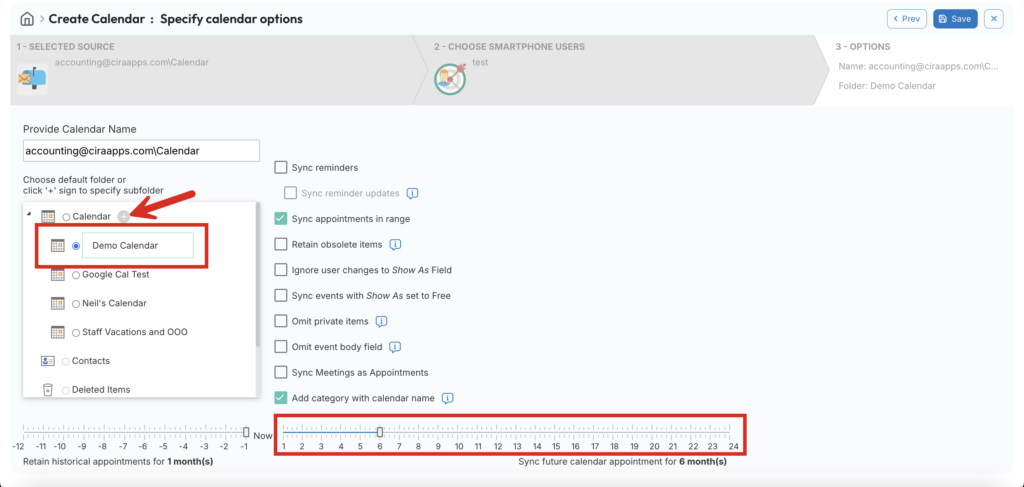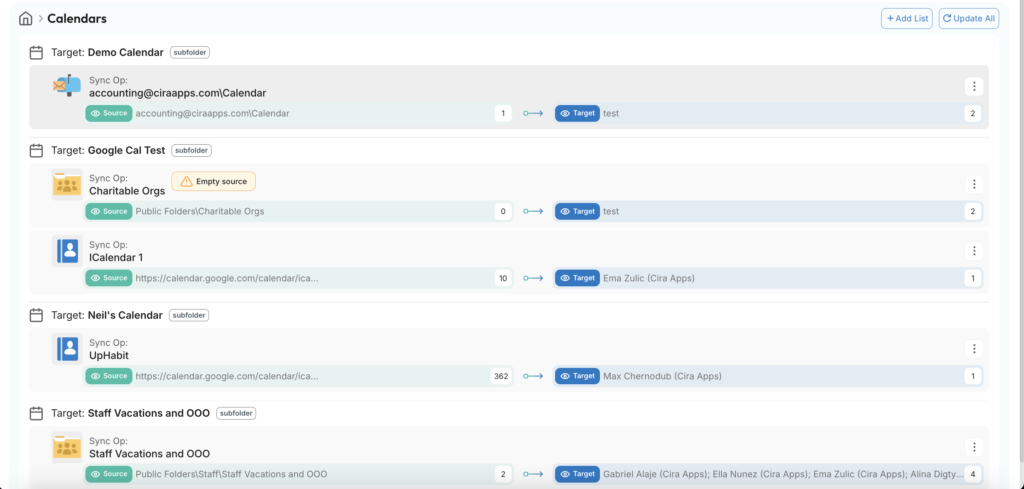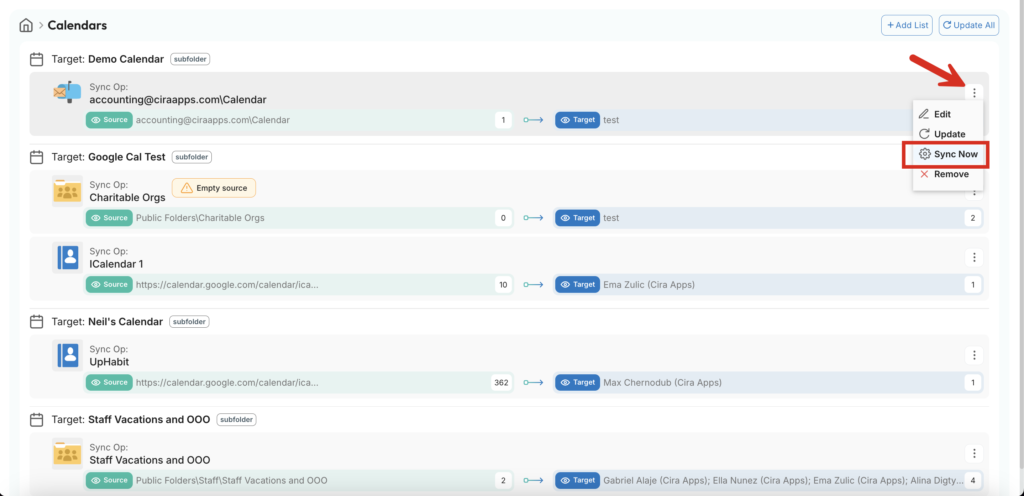Read the instructions or check out the video below to learn how to sync shared calendars with CiraSync Enterprise Edition (EE):
Before You Start
This guide assumes that a dedicated Service Account with Application Consent Access has been set for your CiraSync Dashboard. Without an administrator account with the appropriate settings configured, CiraSync will be unable to push Contact and Calendar updates to user mailboxes. Check out the following articles to learn how to set up a dedicated Service Account with the appropriate permissions for your Tenant and then return here to learn how to sync shared Calendars with CiraSync Enterprise Edition:
- Setting up a Dedicated Service Account for CiraSync in Office 365
- Setting up Application Consent Settings
- Making CiraSync Use a Specific Office 365 Service Account
This guide also assumes that a Collection was created as a Target prior to creating a Contact List. Check out the following article to learn how to set up Collections:
Creating CiraSync Contact Collections
CiraSync
Instructions
- Log in to the CiraSync home Dashboard.
- Click the + in the Calendar (See figure below.)
- Select either Public Folder, Shared Mailbox, an Internet Calendar, or a Shared Mailbox from another Tenant as the source. In this case, we have selected “Shared Mailbox.” You will be taken to STEP 1: Select Private Folder.
- Select the Calendar Source. You will see a hierarchy of folders and you have to choose the appropriate one.
- Select the desired Calendar to use as the sync source. In this example, Calendar (2) folder is the source. (See figure below.)
- Click NEXT. (See figure below.)
You will be taken to STEP 2: Choose target mailboxes.
- Select the desired user mailbox(es) who will receive the synced Calendar. NOTE: To use a Contact Collection as a sync target, click the COLLECTIONS tab and select the desired Collection as the sync target.
- Click NEXT.
You will be taken to STEP 3: Specify Calendar options.
- Provide a name for the Calendar.
- Click the + next to Calendar for the synced Calendar to show up as a subfolder in target user mailboxes. Skip to the next step for the synced Calendar events to appear as part of the main calendar folder in target user mailboxes.
- Click the slider next to Sync reminders to sync Outlook Calendar Event reminders to users. Skip to next Step if this feature is unnecessary.
- By default, CiraSync will remove an event from the targeted mailbox if it is removed from the Source. In case you would like users to keep these obsolete events, check Retain obsolete items.
- New features were added to Ignore user changes to Show As field and Sync events with Show As set to Free.
- By default, private items from the Source Calendar will be synced to the targeted mailbox. Check the box to Omit private items.
- By default, the body field of the event from the Source Calendar will be synced to the targeted mailbox. Check Omit event body field to not sync the body field of the event.
- Use the sliders on the number lines under Sync appointments in range to customize the calendar sync. NOTE: The negative values indicate how long CiraSync will retain any past events before purging them. The positive values indicate the time frame of future events to sync.
- Click SAVE. You will be taken to the sync summary Dashboard. (See figure below.)
- Click the three dots on the right of the sync summary and then “Sync Now” to run your first sync. (See figure below.)
Next article: Syncing Shared Notes to Smartphones with CiraSync Enterprise Edition

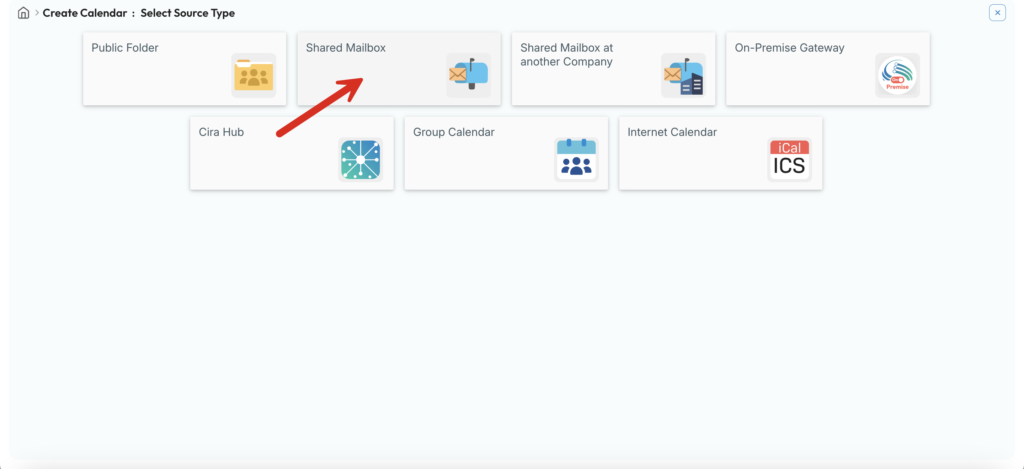
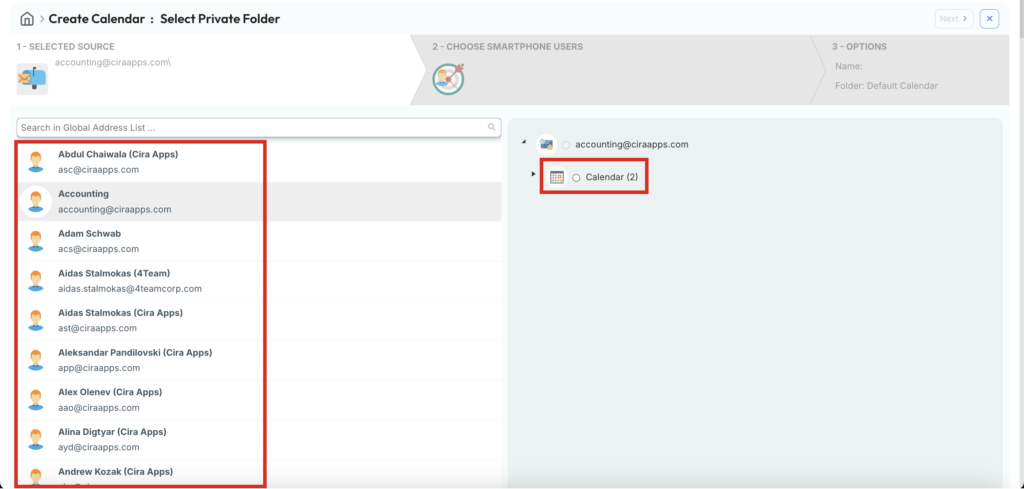
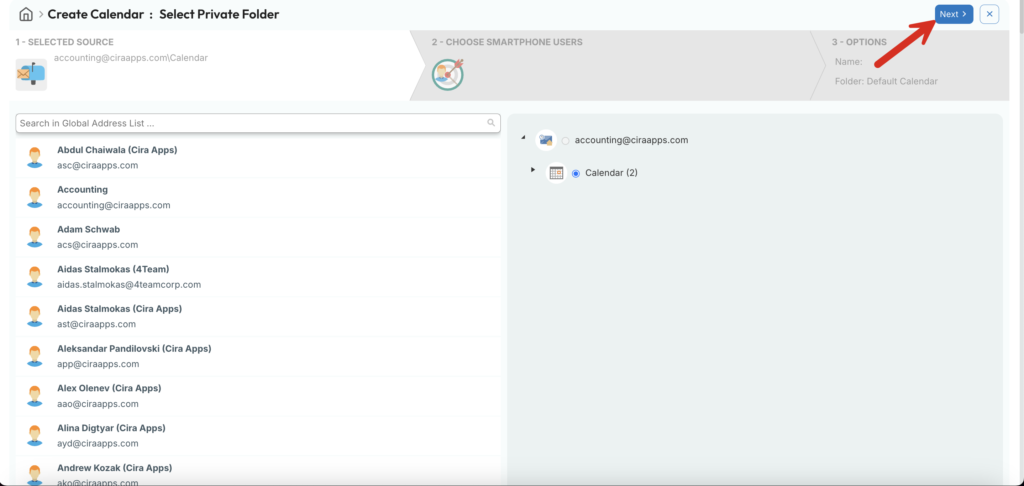 You will be taken to STEP 2: Choose target mailboxes.
You will be taken to STEP 2: Choose target mailboxes.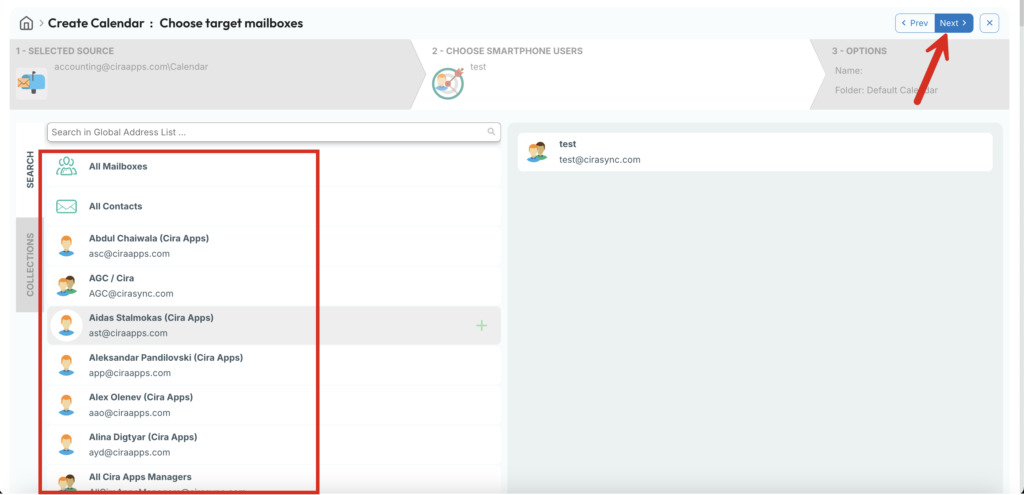 You will be taken to STEP 3: Specify Calendar options.
You will be taken to STEP 3: Specify Calendar options. 